Entrevistas e Editoriais
Através dos Séculos: Como as Apostas Moldaram e Foram Moldadas pela História
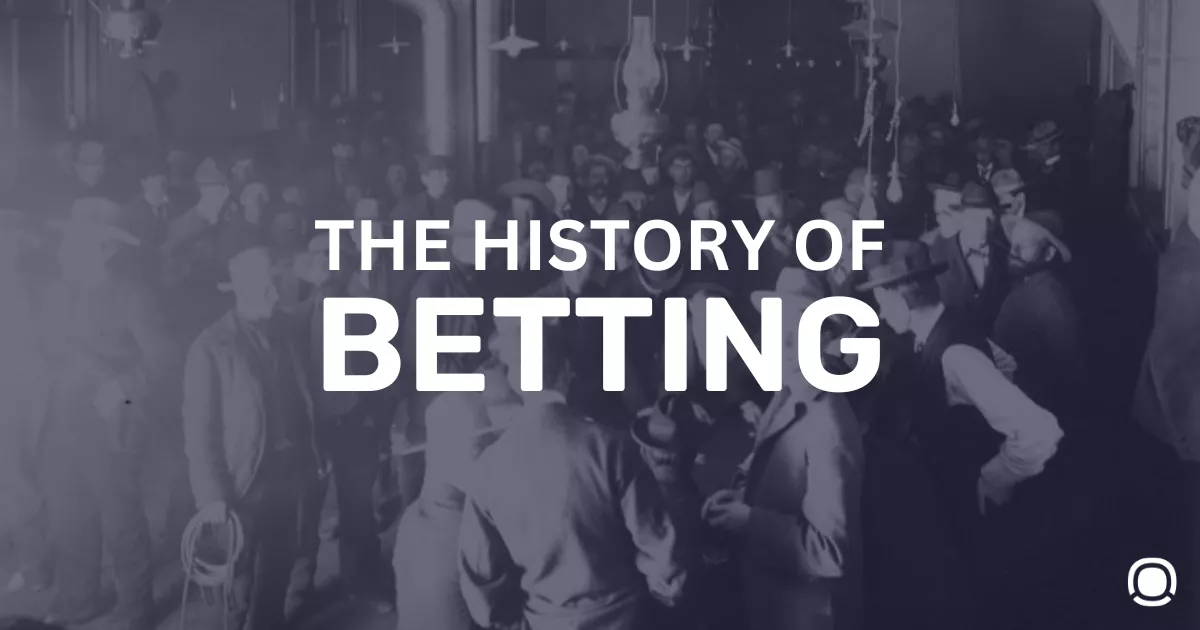
A história das apostas é uma jornada fascinante que atravessa civilizações e épocas, desde os dados rolando na Mesopotâmia até o universo imersivo das apostas online. É um reflexo do fascínio humano pelo acaso, entrelaçado com crenças religiosas, práticas culturais e avanços tecnológicos. Vamos voltar no tempo para ver como esse passatempo, agora uma indústria, não só evoluiu, mas também deixou sua marca em nosso patrimônio cultural coletivo.
Tempos Antigos: As Primeiras Evidências #
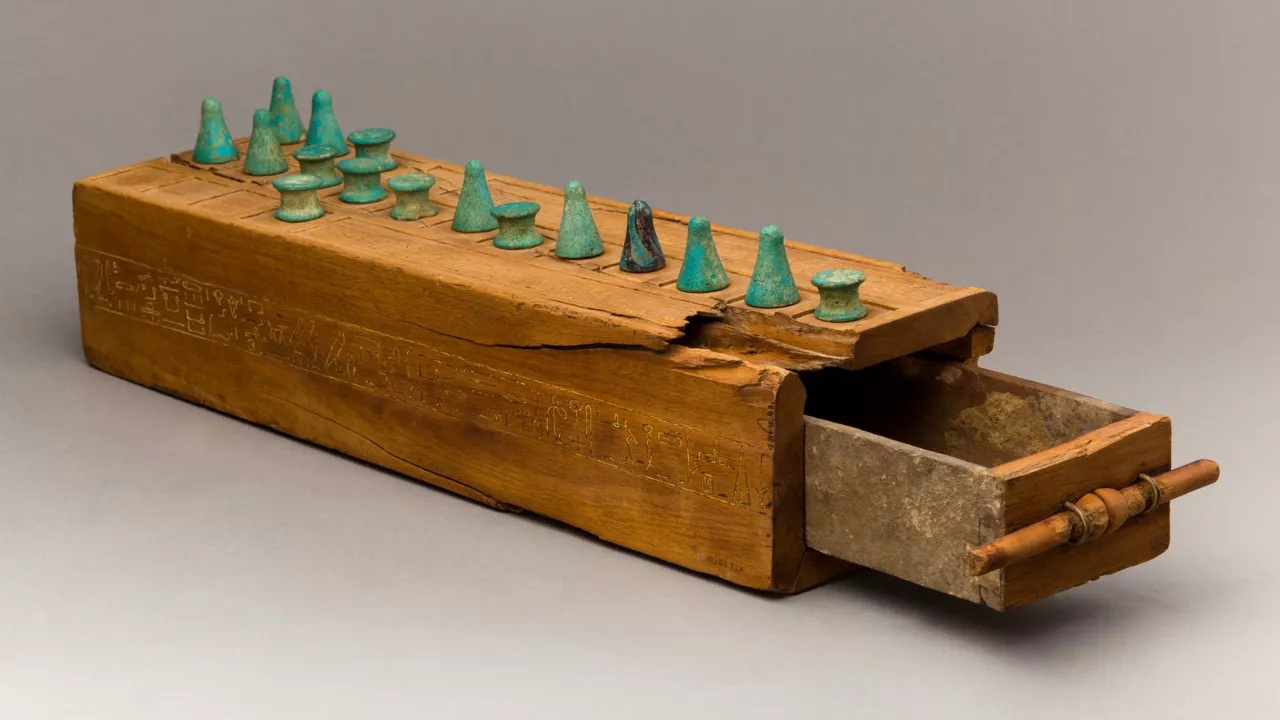
As apostas têm raízes profundas na história humana, remontando a tempos pré-históricos. Arqueólogos encontraram um dado primitivo de seis lados na Mesopotâmia datado de cerca de 3000 a.C., indicando o gosto dos nossos ancestrais por jogos de sorte. Esse formato rudimentar de aposta, frequentemente associado a busca de orientação divina ou interpretação de presságios, estabeleceu as bases para os complexos sistemas de apostas que vemos hoje.
À medida que sociedades como o Antigo Egito e a China avançavam, desenvolveram práticas de jogo mais sofisticadas, muitas vezes ligadas às suas crenças religiosas. Escavações no Egito revelaram o jogo Senet, que acredita-se ter um significado espiritual além de ser um passatempo popular. Na China Antiga, por volta de 2300 a.C., um jogo semelhante a uma loteria, chamado keno, foi utilizado para angariar fundos para o bem da sociedade — uma lenda diz que o jogo ajudou a financiar a construção da Grande Muralha da China. Essa prática refletia uma filosofia de equilíbrio e sorte que permeia as crenças religiosas chinesas.
O cruzamento entre apostas e religião também é evidente no Mahabharata, um épico indiano que conta uma história de um jogo de dados com apostas tão altas que levam a uma guerra devastadora, destacando as profundas implicações espirituais e morais que os jogos de azar possuem na sociedade indiana.
Gregos e Romanos: Apostadores Apaixonados #
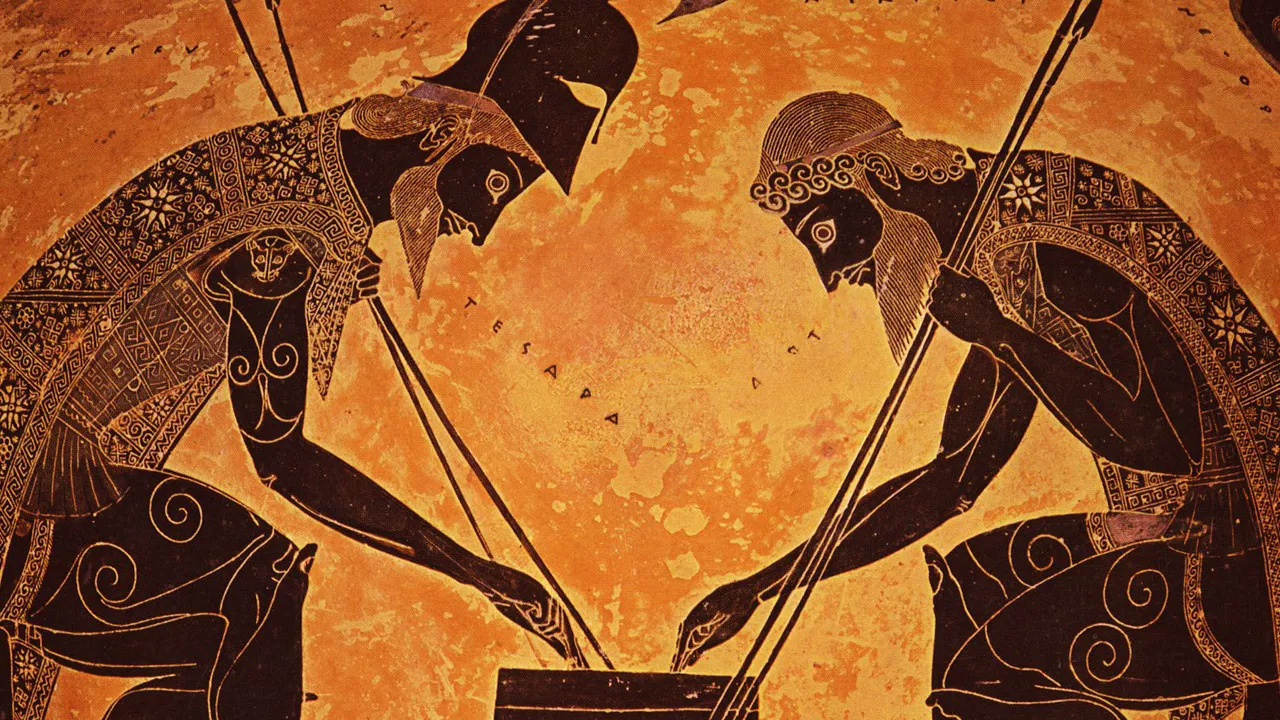
Os gregos, conhecidos por seus eventos esportivos, eram também ávidos apostadores. Desde jogos de dados, chamados "tesserae," jogados nas ruas até apostas nos resultados dos Jogos Olímpicos, os gregos se divertiam com as chances. O filósofo Platão chegou a escrever sobre os perigos do excesso nas apostas, sugerindo sua popularidade na sociedade.
As apostas também eram populares entre os romanos, que herdaram muitas tradições gregas. Apostar em corridas de carruagem e em combates de gladiadores era comum, e imperadores como Augusto e Nero eram conhecidos por fazer grandes apostas. Mesmo com os dilemas morais, a própria lei romana previa um dia legal para as apostas.
Idade Média: Apostas Desafiam Condenações Morais #
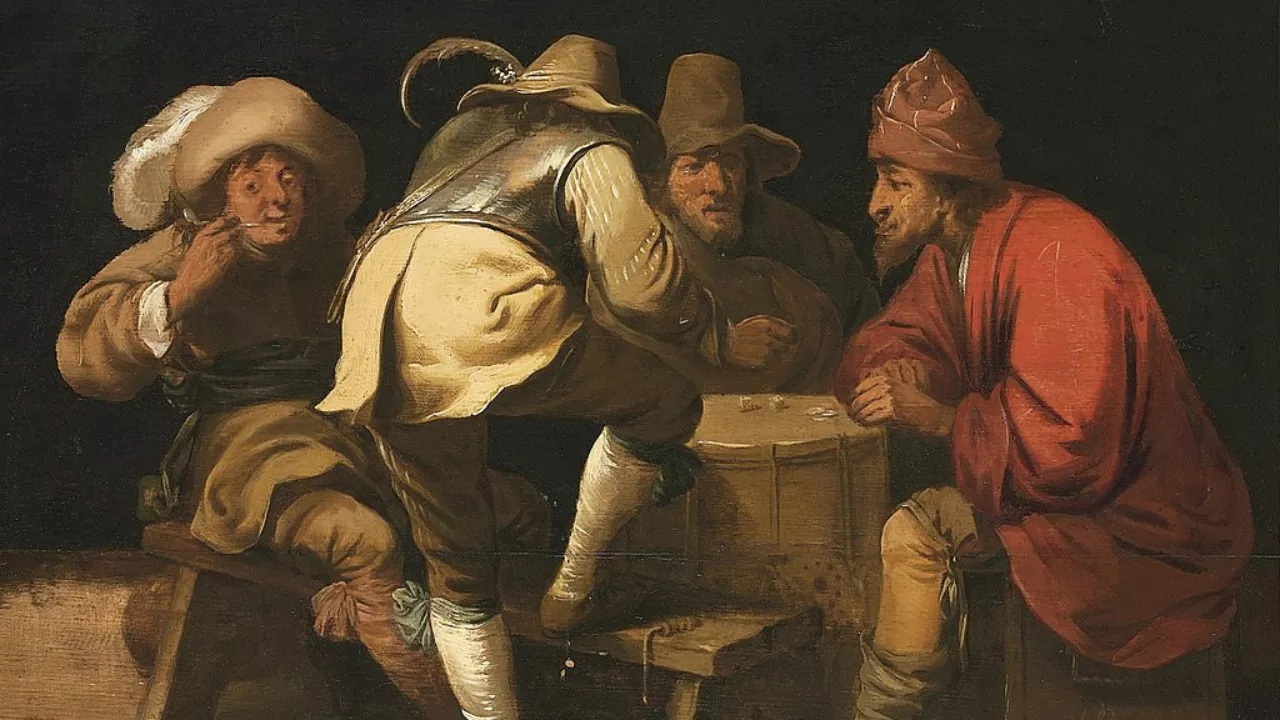
Com o progresso das sociedades na Idade Média, uma época de grandes transformações sociais e religiosas, as atitudes em relação às apostas começaram a mudar. A ética cristã dominante via as apostas com desconfiança e, em alguns casos, com condenação total, frequentemente associando o jogo a um pecado que desviava as pessoas de uma vida virtuosa. Muitos países europeus instituíram leis proibindo apostas em determinados momentos, especialmente em observâncias religiosas, mas o apelo das apostas se manteve.
Em contraste com a desconfiança das sociedades europeias, no Oriente as apostas pareciam mais integradas às práticas sociais e culturais. No século XV, as casas de apostas eram comuns na China e reguladas pelo governo, oferecendo jogos como Fan-Tan e Pai Gow. No Japão, apesar das regulamentações do xogunato Tokugawa, atividades como corridas de cavalos, rinhas de galos e jogos de cartas continuavam populares.
Do Renascimento ao Século XIX: A Evolução das Apostas Modernas #
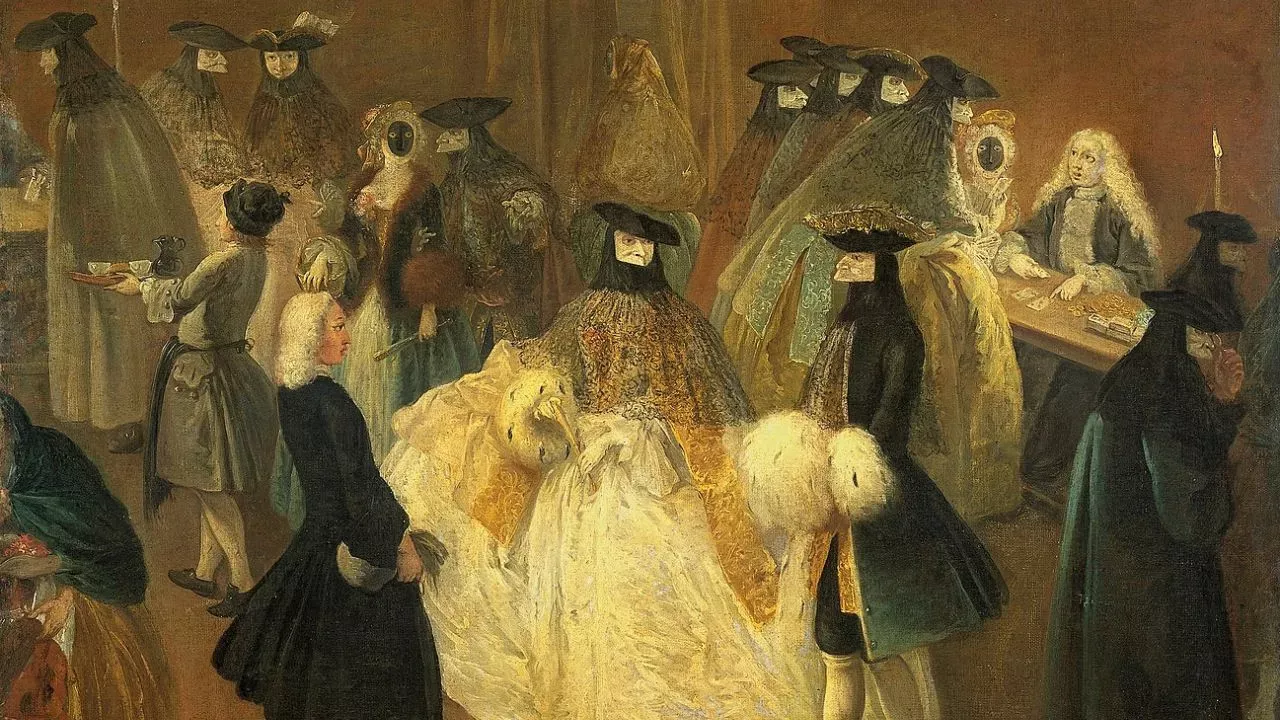
Em 1638, foi inaugurada em Veneza, Itália, a primeira casa de apostas ou "cassino," chamada "Il Ridotto." Durante o Carnaval de Veneza, ela oferecia um ambiente organizado para apostas, embora fosse principalmente acessível às classes altas, dando ao local um ar de glamour e exclusividade.
Os séculos XVII e XVIII trouxeram um grande progresso nas corridas de cavalos e nas apostas na Inglaterra. A criação da Newmarket Town Plate por James I e o apoio da rainha Ana aos hipódromos aumentaram a popularidade das corridas e das apostas associadas. No século XIX, as corridas de cavalos e as apostas estavam profundamente enraizadas na cultura inglesa, e a Lei de Jogos de 1845 legalizou as apostas em corridas, criando um quadro jurídico para a indústria.
Enquanto isso, nos Estados Unidos, o século XIX viu um boom nas apostas nas cidades fronteiriças, onde o pôquer era popular nos saloons. A invenção do telégrafo e a expansão das redes ferroviárias impulsionaram o crescimento das apostas esportivas pelo país, preparando o terreno para o cenário moderno das apostas.
Apostas no Século XX: A Era Moderna #
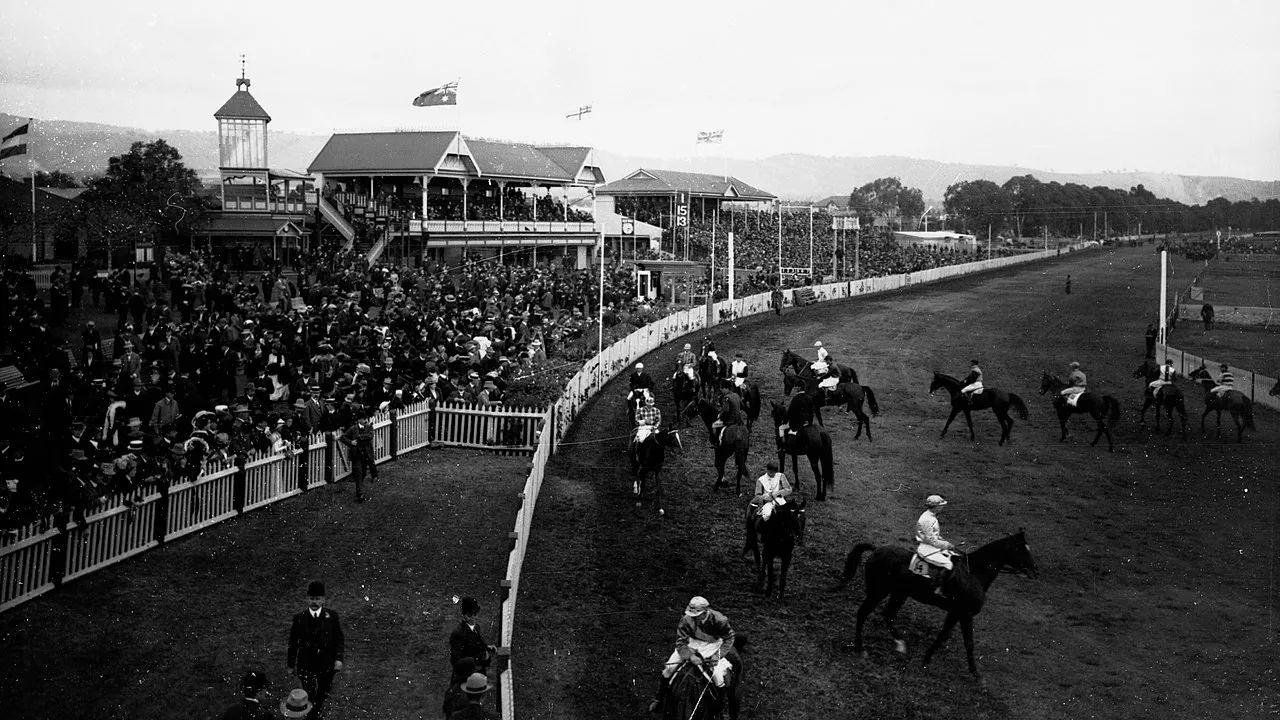
No início do século XX, o movimento para legalizar e regulamentar as apostas ganhou força. Nos EUA, as apostas parimutuel se tornaram legais, revigorando as corridas de cavalos. No Reino Unido, a Lei de Apostas e Loterias de 1934 legalizou as apostas em hipódromos, catalisando o crescimento das corridas e das apostas ao deslocar a atividade de uma prática ilegal para uma atividade regulada.
Ao longo do século, as apostas começaram a se expandir para além das corridas de cavalos, com uma alta nas operações ilegais de apostas nos EUA, especialmente em esportes como beisebol e boxe. No Reino Unido, as apostas em dinheiro fora das corridas foram legalizadas pela Lei de Apostas e Jogos de 1960, estabelecendo casas de apostas licenciadas e promovendo as pools de futebol. Simultaneamente, Las Vegas, que legalizou o jogo em 1931, rapidamente se tornou uma capital mundial das apostas, cheia de cassinos e espetáculos de entretenimento.
A segunda metade do século XX também trouxe a reintrodução das loterias, transformando-as em uma indústria bilionária. Nos anos 90, a era da internet iniciou uma nova transformação, proporcionando uma plataforma acessível e global para as apostas e promovendo transparência e regulamentação.
O Século XXI: As Apostas Tornam-se Digitais #

O novo milênio marcou a chegada da era das apostas digitais, com o jogo pela internet ocupando o centro das atenções. A entrada da indústria no universo digital foi mais do que apenas uma expansão; foi uma revolução que transformou completamente o cenário das apostas.
Os anos 2000 testemunharam a evolução das plataformas de apostas online, mudando a forma como as pessoas jogam. Plataformas inovadoras introduziram trocas peer-to-peer, onde os apostadores podiam definir suas próprias probabilidades e competir diretamente uns com os outros. Os cassinos online explodiram em popularidade, oferecendo uma variedade de jogos como pôquer, roleta, blackjack e caça-níqueis, acessíveis globalmente 24 horas por dia, 7 dias por semana. As apostas esportivas também ganharam um espaço significativo no mundo digital, permitindo que as pessoas apostassem em diversos esportes como futebol, basquete, tênis e golfe. A tecnologia de apostas ao vivo impulsionou ainda mais o crescimento dessas plataformas, possibilitando apostas em tempo real durante eventos esportivos.
A indústria de apostas passou por uma transformação significativa com o crescimento dos smartphones e da tecnologia móvel em meados da década de 2010, levando ao aumento do iGaming móvel. Isso permitiu que os usuários fizessem apostas de seus smartphones e tablets de maneira prática, a qualquer hora e em qualquer lugar. No final da década de 2010 e na década de 2020, a tecnologia blockchain e as criptomoedas adicionaram uma nova dimensão às apostas online. Plataformas de blockchain descentralizadas surgiram, oferecendo maior transparência e segurança. As criptomoedas, especialmente o Bitcoin, tornaram-se populares como método de pagamento rápido e anônimo.
A inteligência artificial (IA) e o aprendizado de máquina (ML) também começaram a deixar uma marca significativa na indústria de apostas, abrindo caminho para uma experiência mais sofisticada, personalizada e segura.
A legalidade das apostas online também evoluiu, embora de forma desigual ao redor do mundo. Nos Estados Unidos, a decisão da Suprema Corte de 2018 de derrubar a Lei de Proteção ao Esporte Profissional e Amador abriu caminho para que os estados legalizassem as apostas esportivas. Na Europa, países como o Reino Unido e Malta lideraram na criação de estruturas regulatórias abrangentes para as apostas online. Além disso, mercados emergentes em regiões como África e América Latina também começaram a desenvolver suas próprias regulamentações.
Em conclusão, a indústria de apostas, moldada por mudanças sociais, tecnológicas e legislativas ao longo dos tempos, demonstrou uma resiliência e adaptabilidade notáveis. Conforme avançamos, as novas tendências parecem ser as apostas com transmissão ao vivo, realidade virtual e aumentada e gamificação. Com uma indústria tão dinâmica e profundamente enraizada na cultura humana quanto as apostas, é certo que essa jornada está longe de terminar. Dos dados antigos aos modelos de negócios sofisticados, a história das apostas serve como um reflexo intrigante de nossa evolução cultural coletiva.
Tags:
Artigos Relacionados
Notícias
29.04.2025.
NSoft and InnovaPlay Strategic Partnership
The strategic collaboration integrates NSoft’s innovative sportsbook technology seamlessly into InnovaPlay’s comprehensive white-label and full web solution, empowering sportsbook operators to reach new heights of performance and player engagement.
Saiba mais
Notícias / Entrevistas e Editoriais
16.04.2025.
Beyond the Bet: How Gamification is Reshaping Online Gambling
By making the gamification elements fun, relevant, and optional, you ensure that they enhance the betting experience rather than overshadow it.
By Marko Galić, Game Mathematician & Project Manager at NSoft
Saiba mais
Não encontrou o que estava procurando?
Nossa equipe terá o prazer de guiá-lo por nossos produtos e serviços.
Contate-nos